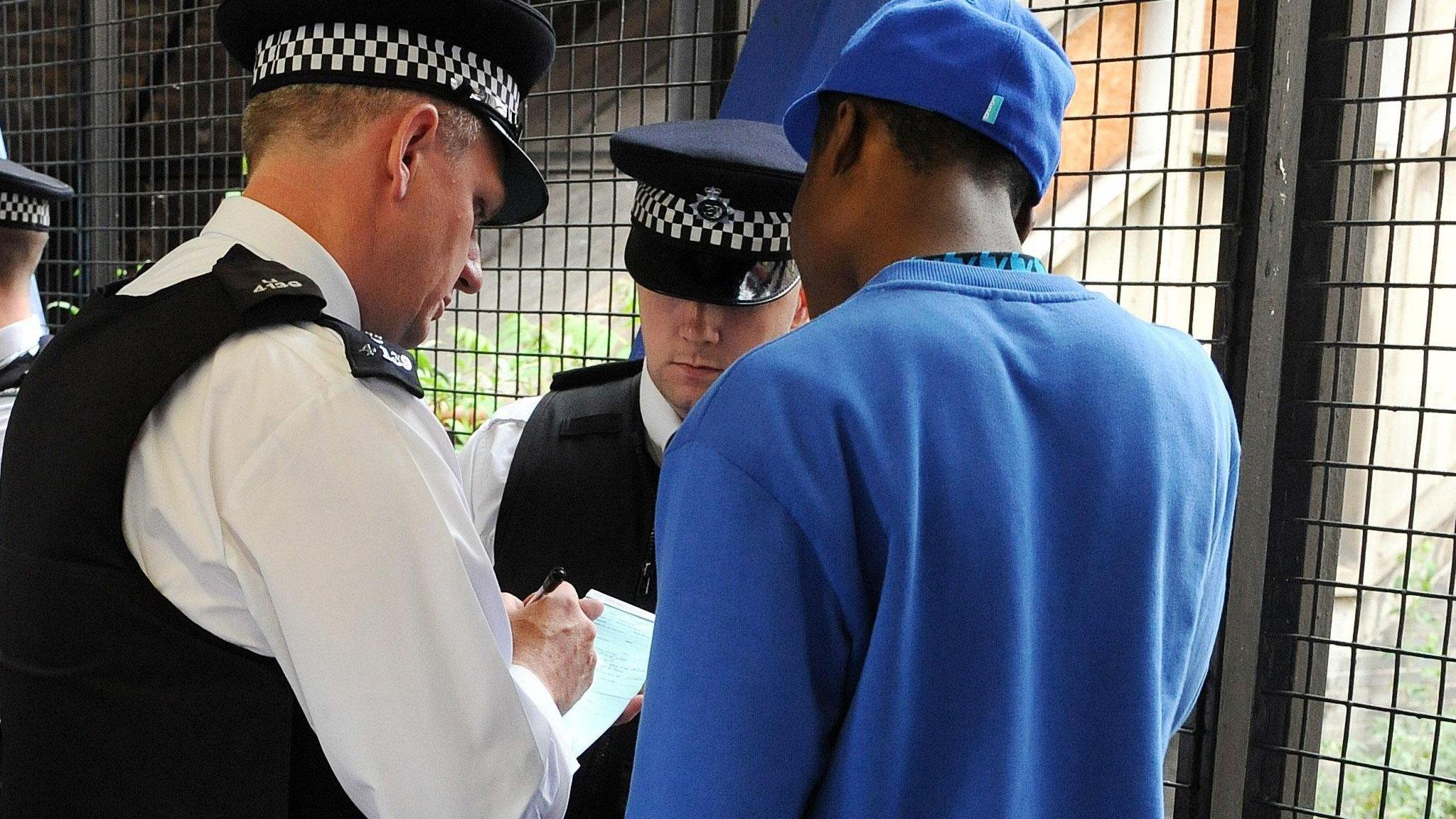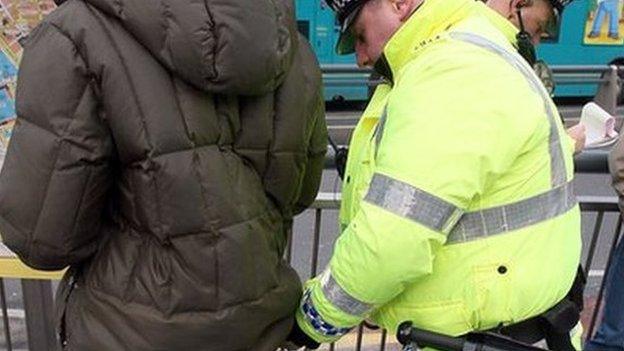Children too often treated as 'small adults' by police
- Published
The BBC's Helena Lee on the relationship between young people and the police
Children and young people have a "profound lack of trust" in the police, bordering on fear in some cases, a report by MPs and peers has suggested.
Children are often treated as "small adults", with their specific needs disregarded, according to the all-party parliamentary group for children, external.
Negative experiences, such as arrest and stop and search procedures, breeds "frustration and anger", it warned.
It urged changes to training, custody facilities and safeguarding approaches.
Publishing the findings of an 18-month inquiry, the committee said children and young people's first contact with the police was vital in shaping their attitudes towards them.
'Ingrained attitudes'
"For a significant number of children and young people, this experience is a negative one as a victim or suspected offender," the report said.
"Once a negative encounter has occurred, it takes time and hard work to change ingrained attitudes, which are often passed on from one generation to the next".
Some children and young people, the report suggested, feel humiliated when they come into contact with the police, are confused by their procedures, and do not believe they are there to protect them.
It pointed to evidence that children who have been trafficked or suffered sexual exploitation have experienced very different treatment by the police, akin to a "postcode lottery".
The report outlined a number of recommendations, including:
Home Office and College of Policing should share best practice of forces developing "positive relationships" with children and promoting safety and welfare
Every police force should have a senior officer, of ACPO rank, responsible for procedures involving children and young people
Statutory guidance on stop and search should be revised to include a focus on protecting children, particularly in relation to those under 10
HMIC assessments of police forces should include a focus on quality of engagement with young people
Police training should be reviewed to improve understanding of issues involving children and young people and to improve communication
No children or young people should be detained under section 136 of the 1983 Mental Health Act by 2017
All police custody facilities should have a separate area for children and young people
Labour peer Baroness Massey of Darwen, who chairs the parliamentary group, said the welfare and safety of young people must be paramount in the police's dealings with them.
"It is critical that in every encounter with the police, under-18s are treated as children first," she said.
"Whilst there are exemplary initiatives seeking to improve relationships between young people and the police, these positive approaches are not reflected across the country."
Conservative MP Tim Loughton, who sits on the committee, said the report was an "eye-opener".
"At a time when headlines are dominated by young victims of child abuse being failed by police in places like Rotherham... it is more essential than ever that we have a much better position of trust between the police and our young vulnerable citizens," the former children's' minister said.
The National Children's Bureau, which provides secretarial support for the committee, said the police must be "equipped to put children's well-being and their distinct, separate needs and rights at the forefront of their interaction with all under-18s".
- Published26 August 2014

- Published30 April 2014
